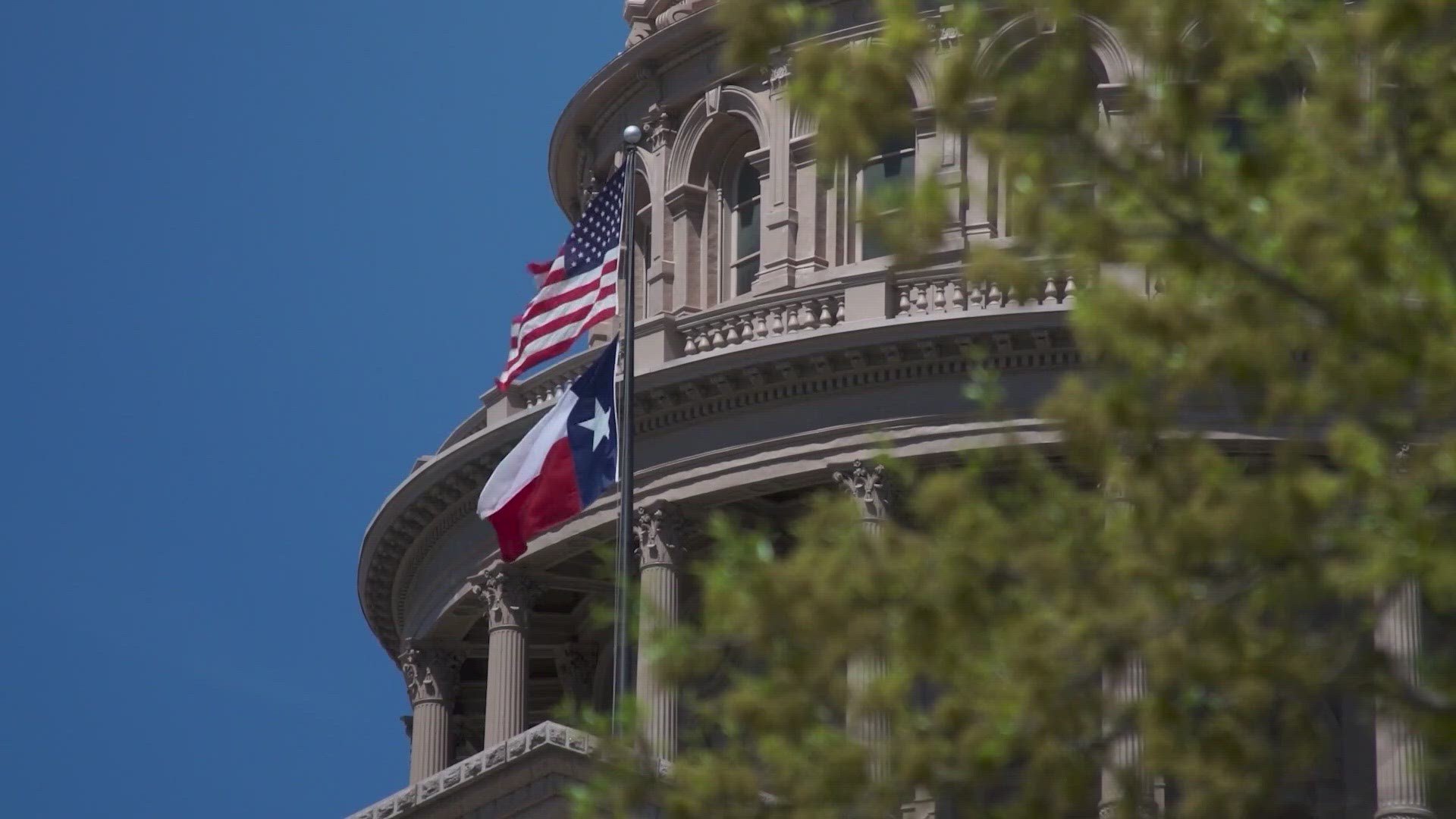SAN ANTONIO — The three-way property tax battle between Gov. Greg Abbott, Lt. Gov. Dan Patrick and House Speaker Dade Phelan officially ended on Monday.
While the governor and speaker pushed hard for a plan that used around $17 billion of the state's budget surplus to focus solely on reducing school district tax rates, Patrick's Senate demanded a $100,000 tax exemption for homeowners and a smaller tax rate reduction.
The Senate plan unquestionably saved homeowners more money while the House plan favored businesses, and Patrick spent the last month pointing this out in press conferences and on social media. The Senate also stood united with republicans and democrats constantly voting in full favor of their position.
And while Monday's deal will be called a compromise, Jon Taylor, head of UTSA's political science department, said Patrick's Senate can quietly claim the win.
"Patrick and his crew came (to work) every day, he got unity among Republicans and Democrats in the state Senate... they talked virtually every day. And in the end Patrick won." Taylor said. "The governor retreated on his plans on tax-compression alone and a deal got done."
The final $18 billion plan still includes the $100,000 homestead tax exemption the Senate wanted, a slightly higher school district tax rate reduction of $0.107 (per $100 of value), and a three-year "experimental" 20% cap on how much businesses can be appraised each year.
"Abbott, Phelan and Patrick all got something out of this deal. Abbott gets his tax cut, Patrick gets his $100,000 homestead exemption and Phelan gets at least somewhat of an appraisal cap," Taylor said.
The 20% appraisal cap is said to be a "circuitbreaker" measure that keeps businesses from having their values raised too far. It applies to non-homestead properties valued at less than $5 million.
In theory, it could reduce rental prices for businesses and individuals. In practice, Taylor said, it was an olive branch for the house and the governor.
"It's only a three-year experimental program and who knows if it will survive," Taylor said. "That was a bone thrown as much as anything else."
The plan will reduce school district property taxes next year. According to KENS 5's analysis, a $320,000 home in San Antonio would save $987 next year based on current numbers. A $200,000 home would save $858, and a $700,000 home would save $1393.
The analysis used an average of ISD tax rates in Bexar County to make the calculations. Taylor expects the legislature to pass the plan within two weeks, and possibly as soon as Friday.
Texas voters will then need to approve the plan at the polls in November.
The plan would reduce school district tax revenue from homeowners while reimbursing those districts with surplus state budget funds, to the tune of $18 billion. In a year when Texas technically has a budget surplus of around $50 billion, this is more than possible.
The concern, Taylor said, is the state may not always be so fortunate.
"School districts will now be more dependent on state money. That's all great when you have a record budget surplus this session, but we have no guarantee in 2025 and beyond what kind of surplus we will have," Taylor said. "I think the legislature and Abbott are engaging in wishful thinking to assume that the 'Texas miracle' will perpetually have economic growth. Based on state history, that is not the case. We see downturns on a regular basis."
Taylor said Abbott may or may not give lawmakers some time off after they pass the property tax reduction. But the governor does have the power to add more items to the current special session, such as school choice, thereby keeping lawmakers in Austin.
>MORE TEXAS POLITICS NEWS:
>TRENDING ON KENS 5 YOUTUBE:

